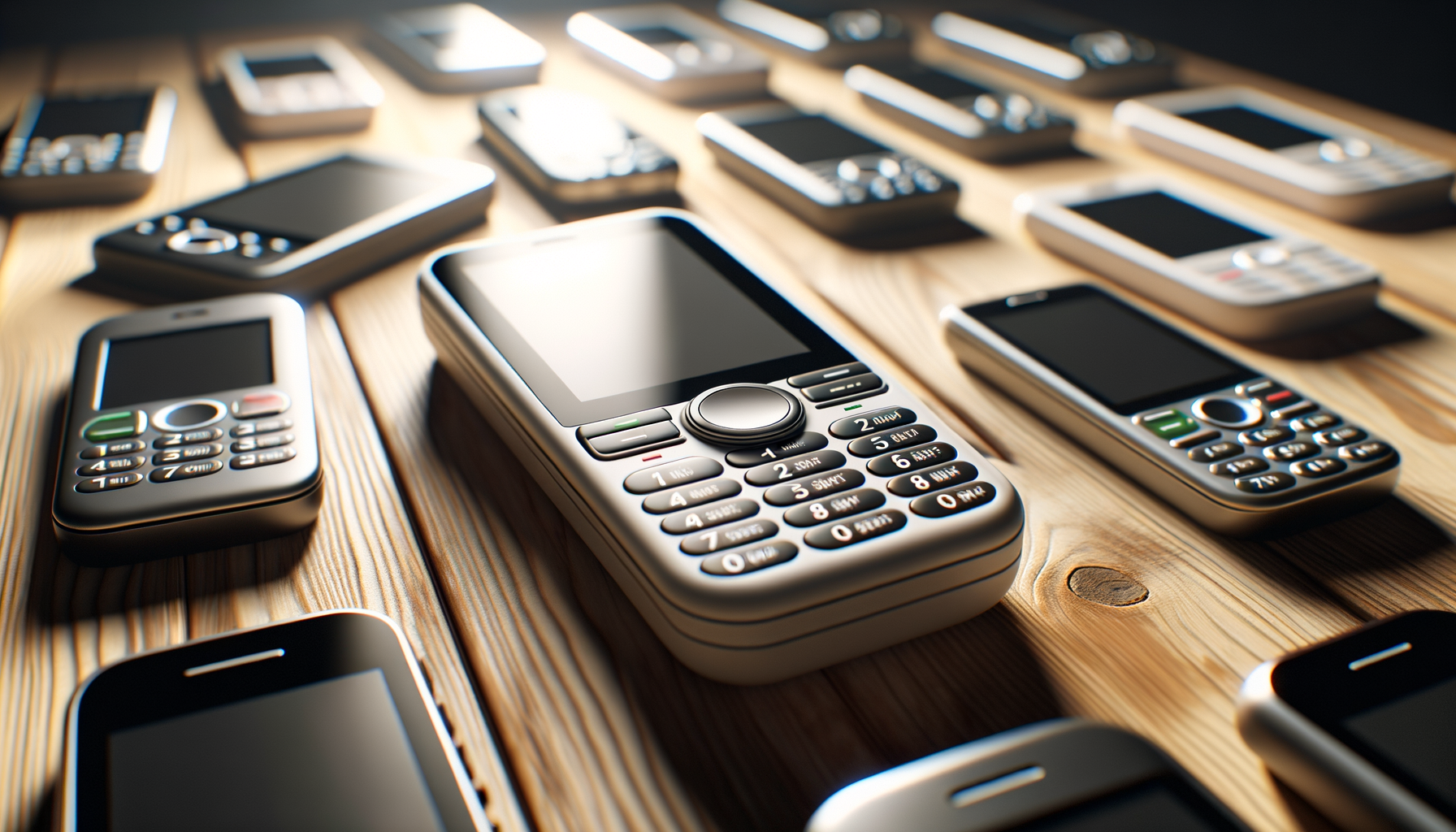Understanding the Needs of Elderly Users
When it comes to selecting a mobile phone for the elderly, understanding their specific needs is crucial. Unlike younger generations who might prioritize cutting-edge technology and the latest apps, seniors often seek devices that offer simplicity and reliability. Key considerations include the ease of use, visibility of the screen, and the size of the buttons. For instance, many seniors experience diminished eyesight, making larger screens and adjustable text sizes essential features. Additionally, hearing impairments can necessitate phones with louder speakers or compatibility with hearing aids.
Another important factor is the user interface. Seniors benefit from intuitive designs that minimize complexity. Phones with simplified menus and dedicated buttons for frequently used functions, such as calling and messaging, can enhance the user experience significantly. Safety features, like GPS tracking and emergency buttons, also provide peace of mind for both the users and their families. Understanding these needs helps in narrowing down the choices to devices that truly serve the elderly community.
Key Features to Look for in Senior-Friendly Phones
When exploring mobile phones for the elderly, certain features stand out as particularly beneficial. One of the most critical aspects is a user-friendly interface. Phones designed for seniors often come with simplified menus and large, easily readable icons. This design approach reduces the learning curve and makes navigation straightforward.
Another feature to consider is the phone’s durability. Seniors may prefer devices that can withstand occasional drops or spills, making rugged phones or those with protective cases a wise choice. Battery life is also a significant consideration; phones with long-lasting batteries ensure that users are not left without communication in critical moments.
Furthermore, accessibility features such as voice commands and text-to-speech can be invaluable for seniors who have difficulty with traditional input methods. Some phones even offer health monitoring capabilities, which can track vital signs and alert caregivers to potential issues. These features collectively enhance the usability of mobile phones for the elderly, making daily communication simpler and more secure.
Comparing Different Types of Mobile Phones
The market offers a variety of mobile phones catering to different needs and preferences. For seniors, the choice often boils down to three main categories: feature phones, smartphones, and specialized senior phones.
Feature phones, also known as basic phones, are renowned for their simplicity. They typically come with physical keypads and minimalistic interfaces, focusing primarily on call and text functionalities. These phones are ideal for seniors who need a straightforward device without the complexities of modern smartphones.
Smartphones, on the other hand, offer a wide range of functionalities, from internet browsing to app usage. For tech-savvy seniors, smartphones can be a gateway to staying connected with family and accessing information. However, it’s crucial to select models with user-friendly interfaces and customizable settings to suit individual needs.
Specialized senior phones are designed with the elderly in mind, offering features like large buttons, clear displays, and emergency call buttons. These phones often include additional safety features, such as fall detection and GPS tracking, making them an excellent choice for seniors who prioritize security and ease of use.
Budget Considerations and Cost-Effectiveness
Budget is an essential factor when choosing a mobile phone, especially for seniors who may be on a fixed income. Fortunately, there are options available across various price ranges that do not compromise on quality or essential features.
Feature phones are generally the most cost-effective, providing basic functionalities at an affordable price. These are suitable for seniors who primarily use their phones for calls and texts. On the other hand, smartphones can vary significantly in price. While high-end models offer extensive features, there are mid-range and entry-level smartphones that provide excellent value, balancing performance with affordability.
Specialized senior phones often fall in the mid-range price category but offer features specifically tailored to seniors, which can justify the cost. It’s important to assess the features that are most important to the user and find a device that meets those needs without exceeding the budget. Additionally, considering long-term costs such as data plans and potential repair costs is crucial for making a well-rounded decision.
Conclusion: Making the Right Choice
Selecting the right mobile phone for an elderly user involves a careful consideration of their unique needs and preferences. By focusing on ease of use, essential features, and budget considerations, one can find a device that enhances the quality of life for seniors.
Whether opting for a simple feature phone, a versatile smartphone, or a specialized senior phone, the key is to ensure the device is user-friendly and meets the specific requirements of the user. As technology continues to evolve, staying informed about the latest developments can help in making an informed choice that balances functionality with accessibility.
Ultimately, the right mobile phone can serve as a vital tool for communication, safety, and connectivity, offering seniors a greater sense of independence and peace of mind.








